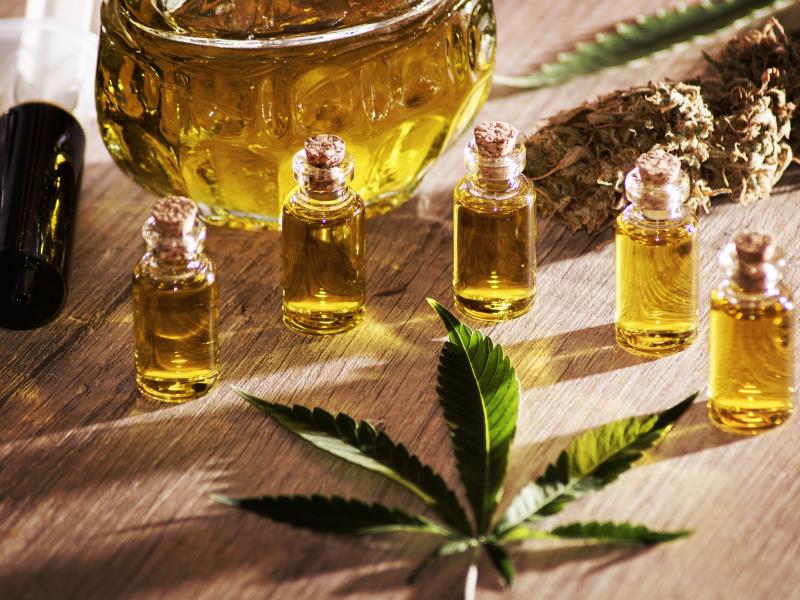
The addition of highly purified cannabidiol (CBD) into an antiepileptic regimen led to reductions in convulsive seizure rates in children with Dravet syndrome (DS), the GWPCARE2* study has shown.
DS is a rare epileptic encephalopathy that has a high mortality risk due to SUDEP** and status epilepticus. [Epilepsy Res 2016;128:43-47; Pediatrics 2017;139:e20161933] Poor seizure control in DS may lead to comorbidities and worsen quality of life. [Dev Med Child Neurol 2018;60:63-72] The search continues for therapeutic alternatives as most cases remain resistant to the currently available antiepileptic drugs (AEDs). [Pediatr Neurol 2017;68:18-34.e3; Epilepsia 2011;52:72-75]
“[T]o our knowledge, [this trial is] the first to evaluate the efficacy and safety of two doses of CBD (10 and 20 mg/kg/day) in [this setting] … Our key finding is the significant and clinically meaningful reduction of seizures with an acceptable safety profile for both CBD doses in patients with highly treatment-resistant DS,” said the researchers.
The team evaluated 199 children (mean age 9 years, 53 percent female) who had at least four convulsive seizures during the 4-week baseline period while receiving at least one AED. Participants were randomized 2:2:1:1 to receive oral CBD 10 or 20 mg/kg/day (CBD10 and CBD20, respectively), or matching placebo in two equally divided doses for 14 weeks***. [JAMA Neurol 2020;doi:10.1001/jamaneurol.2020.0073]
At week 14, convulsive seizure frequency dropped by 48.7 percent and 45.7 percent in the CBD10 and CBD20 arms, respectively, which were greater than placebo (26.9 percent). Compared with placebo, the percentage reductions for the respective CBD10 and CBD20 arms were 29.8 percent (p=0.01) and 25.7 percent (p=0.03).
The placebo rate was notably higher than that found in CARE1 (13 percent). [N Engl J Med 2017;376:2011-2020] “[This could be] partly related to the numerically higher median baseline convulsive and total seizure frequency in the placebo [arm],” said the researchers. Nonetheless, the treatment effect in the current trial was statistically significant.
Treatment-emergent adverse event (AE) rates were similar across all arms (87.5 percent, 89.9 percent, and 89.2 percent for the respective CBD10, CBD20, and placebo arms) and were mostly mild to moderate in intensity (ie, reduced appetite, diarrhoea, somnolence, pyrexia, fatigue).
Potential hepatotoxicity?
However, liver transaminase levels were elevated in the CBD10 and CBD20 arms (6.8 percent and 27.7 percent, respectively). “[These were] greater than three times the upper limit of the reference range [and were observed among those] taking concomitant valproate,” said the researchers. Nonetheless, this resolved spontaneously or through dose reduction of CBD or the concomitant AED, or after trial completion or discontinuation, they noted.
While this implies a potential interaction between CBD and valproate that might prompt a drug-induced liver injury, CBD did not significantly affect the plasma levels of valproate or its major hepatotoxic metabolite in both healthy and epileptic individuals, noted the researchers. [Clin Pharmacol Drug Dev 2019;8:1009-1031] “[This suggests] that the interaction is not likely pharmacokinetic in nature,” they added. However, this underlines the need for careful monitoring of AEs to determine potential interactions between CBD and other agents.
Low-dose CBD safer?
While the safety findings appear to favour the 10-mg CBD dose, which is the US-recommended maintenance dose, the researchers underscored that both CBD doses had an acceptable safety profile. Should dose escalation be required for better seizure management, this should be tailored according to varying individual responses, they added.
“[Overall, our findings] are an important addition to the emerging clinical trial data on CBD in the acute and long-term treatment of paediatric developmental and epileptic encephalopathies,” said the researchers.
However, the researchers cautioned against extrapolating the findings to other CBD-containing agents. “[M]any formulations of CBD vary in purity, excipients, and consistency,” they said. Moreover, the findings cannot be generalized to adults and other ethnicities owing to the young, predominantly white cohort, noted the researchers. Longer-term trials are warranted to ascertain the long-term efficacy and safety of CBD in this setting, they added.